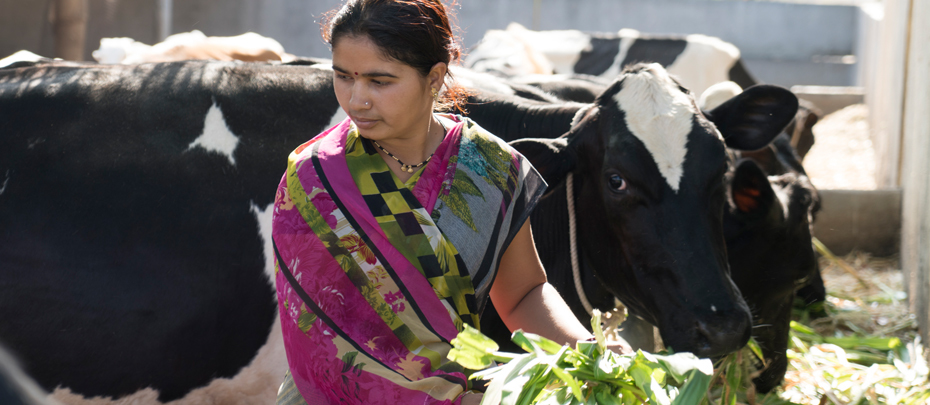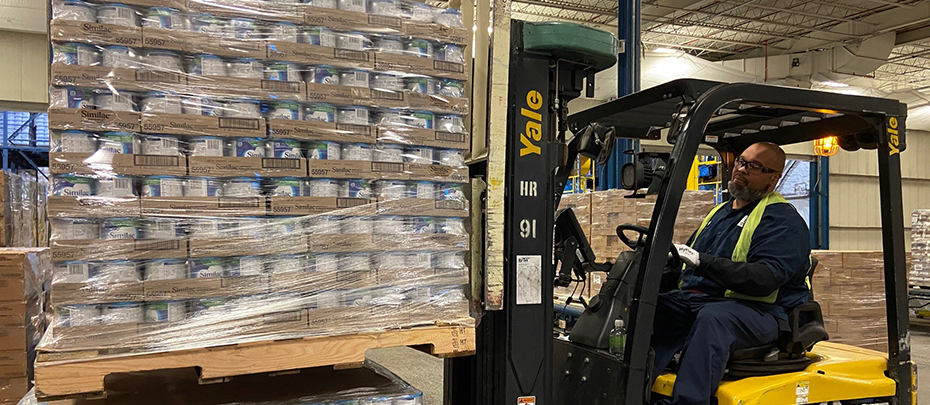A worldwide problem
Malnutrition affects people in all communities around the world and takes many forms.
- Stunting: Kids who fall below a healthy height for their age. Among children under 5 around the world, it's estimated 149 million are stunted.1
- Underweight: Adults who are below a healthy body mass index (BMI). Around the world, 462 million are underweight.2
- Wasting: Kids or adults who are below a healthy weight for their height. Among kids under 5, 45 million are below a healthy weight.3
- Overweight or obese: Kids or adults who are above a healthy weight for their height. Around the world, 1.9 billion adults are overweight or obese.4
- Among children 5 and younger, 39 million are overweight.5
The problem is extremely complex. Countries are simultaneously fighting the burdens of hunger, stunting, wasting and obesity. Conflict, environmental crises, and economic instability play a role. Vulnerable groups continue to be disproportionately affected by these disruptions and lack of resources, impacting access to good nutrition and ultimately, improved outcomes.
''Malnutrition affects 1 in 3 people around the world, and it's not only a result of extreme poverty," said Daniel Salvadori, executive vice president of Abbott's nutrition business. "It affects people of all ages, all geographies and all socioeconomic classes. Progress to address malnutrition is slow and has been exacerbated by the COVID-19 pandemic. Abbott has long been focused on improving nutrition through our innovations. The creation of the Abbott Center for Malnutrition Solutions will enable us to apply our science and expertise in collaboration with others to improve systems and ensure good nutrition is accessible to more people around the world."
Taking a different approach
The Abbott Center for Malnutrition Solutions will follow four key principles in its efforts to reduce malnutrition:
Convening the experts
Abbott will cultivate conversations between the foremost experts in the fight against malnutrition. These conversations will look at malnutrition from different aspects, creating engaging discussions to understand the challenges, raise awareness of the problem and call on partners to work together to reduce malnutrition.
Co-creating solutions
Given the many forms of malnutrition that are contributing to the crisis, solutions cannot be one-size-fits-all. Abbott is building an advisory board made up of experts from each region of the world to help understand the needs and nuances of malnutrition at a local level and connect with like-minded partners.
Leveraging science and innovation
Science and innovation are core to addressing malnutrition. Abbott has a long history of success in understanding the science behind nutrition and innovating to make nutrition accessible to people around the world. The company will leverage its learnings from previous work such as Nourimanba in Haiti, Ultra Rice in India, the MUAC z-score tape, and the Malnutrition Quality Improvement Initiative (MQii) as examples to guide its ongoing work.
Designing for sustainability
Making a meaningful impact on malnutrition requires solutions that are sustainable and accessible. The ability to reach the people who need it and scale and replicate beyond a single project or donation will be key considerations when designing solutions and choosing partners.
The work of the Center will also contribute to Abbott’s 2030 Sustainability Plan ambition to transform care for malnutrition, chronic disease, and infectious disease, with a goal to improve the lives of more than 3 billion people by decade’s end.




Social Share